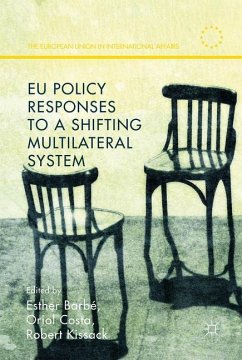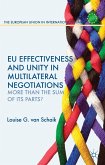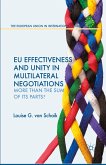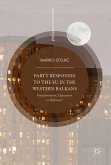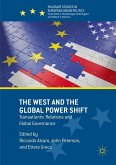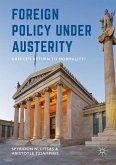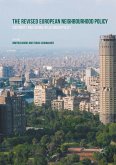This book explores how the EU, as an international actor, is adapting to recent transformations in the multilateral system. The international identity of the European Union is built upon its support for effective multilateralism and its commitment to core norms and values. Until recently, there was no need to choose between these goals. Emerging powers in the international system are not only demanding more power in multilateral institutions, but also sometimes seeking to influence their purpose and function, away from those championed by the EU. This presents a dilemma for EU foreign policy - framed in this edited volume as either accommodating changes in order to support multilateral institutions or entrenching the EU position in order to uphold values. Using a common analytical framework, the chapters include case studies on important multilateral institutions such as the United Nations Security Council, the International Monetary Fund, the World Trade Organization and theInternational Criminal Court, as well as key policy areas such as energy, climate change, nuclear non-proliferation, and human rights.
"This book edited by three Professors of International Relations at IBEI ... is definitely useful to understand topical trends in international politics, such as the intensification of contradictions between the transnational and the national or between the economy and the political. ... This non-Eurocentric perspective brought by non-Anglo-Saxon researchers is very welcomed. The specific approach taken by the authors is actually the main contribution of the book within the literature on European foreign policy." (Marlène Rosano-Grange, European Review of International Studies, Vol. 05 (01), 2018)

